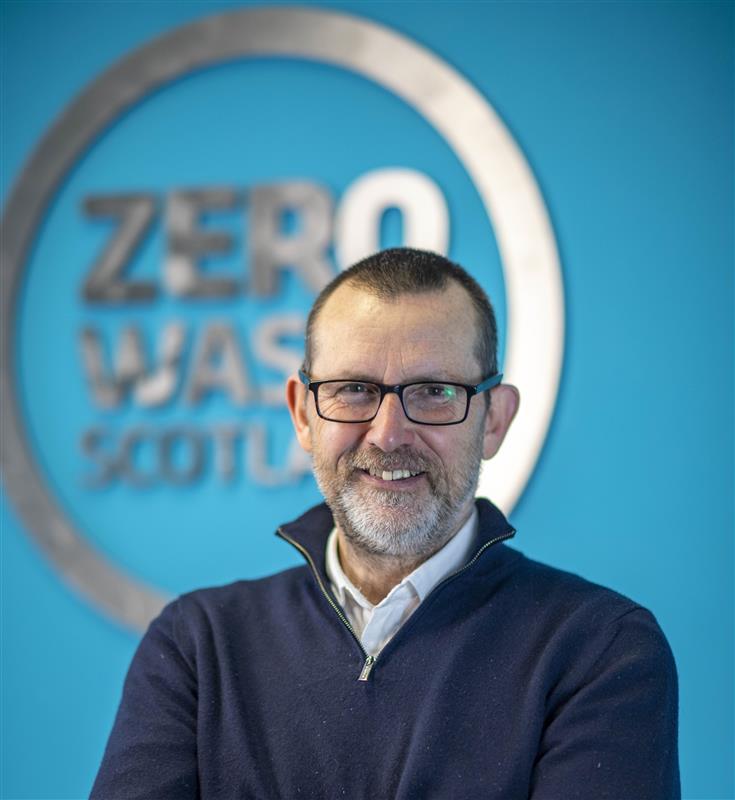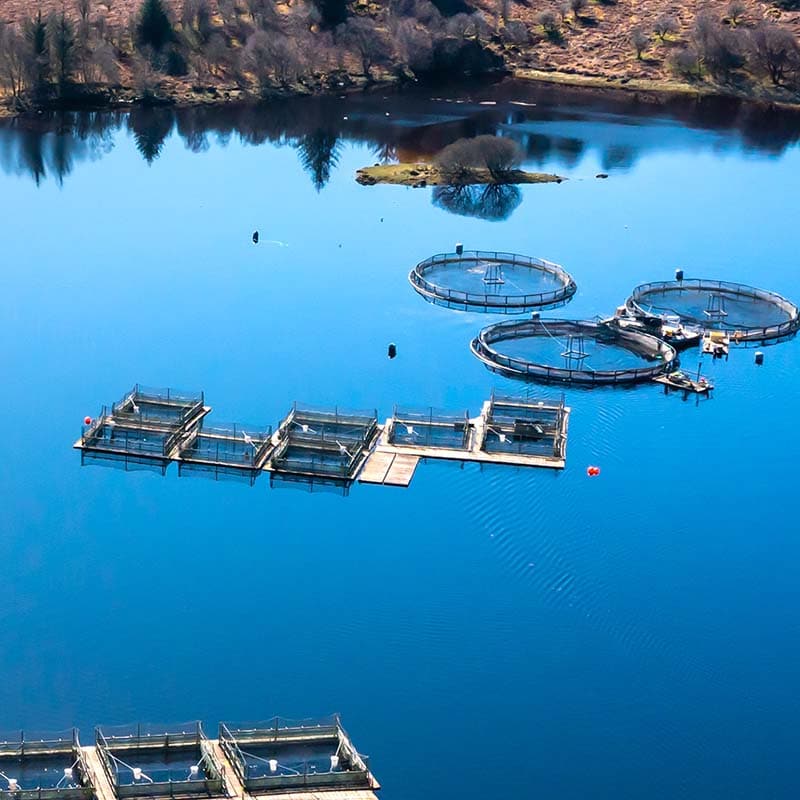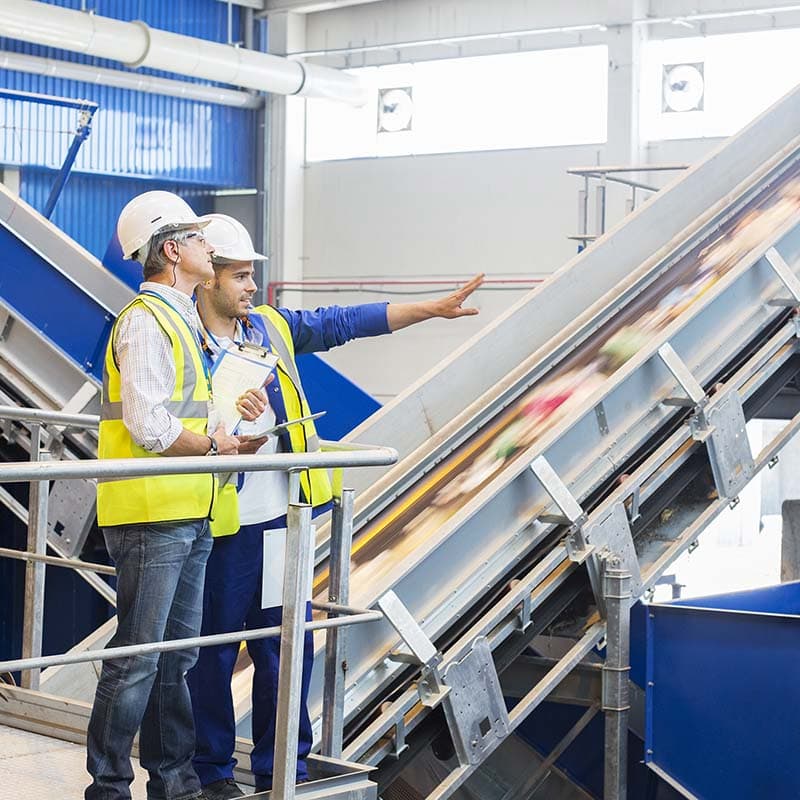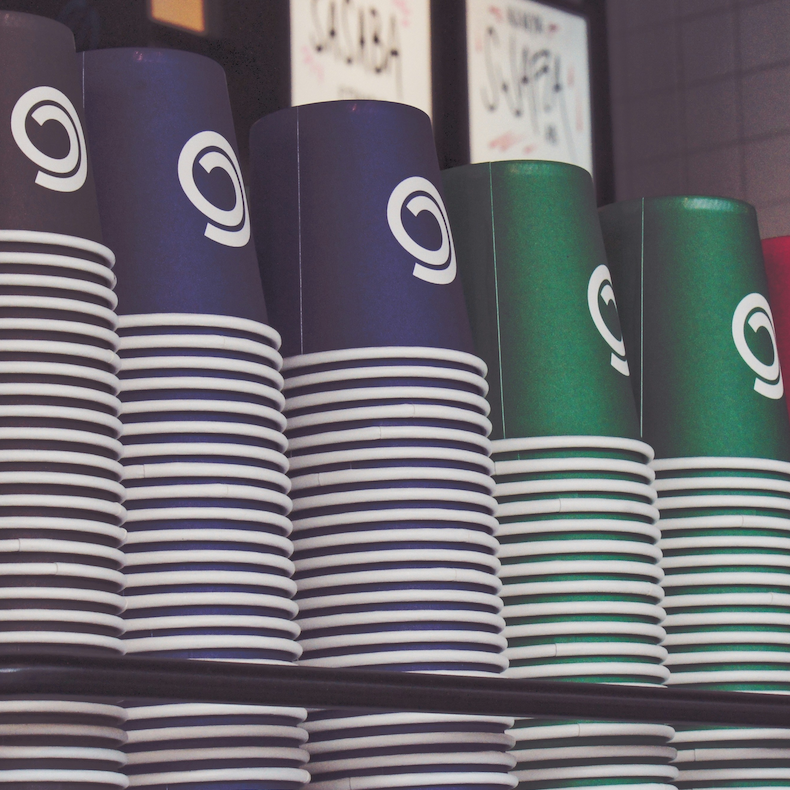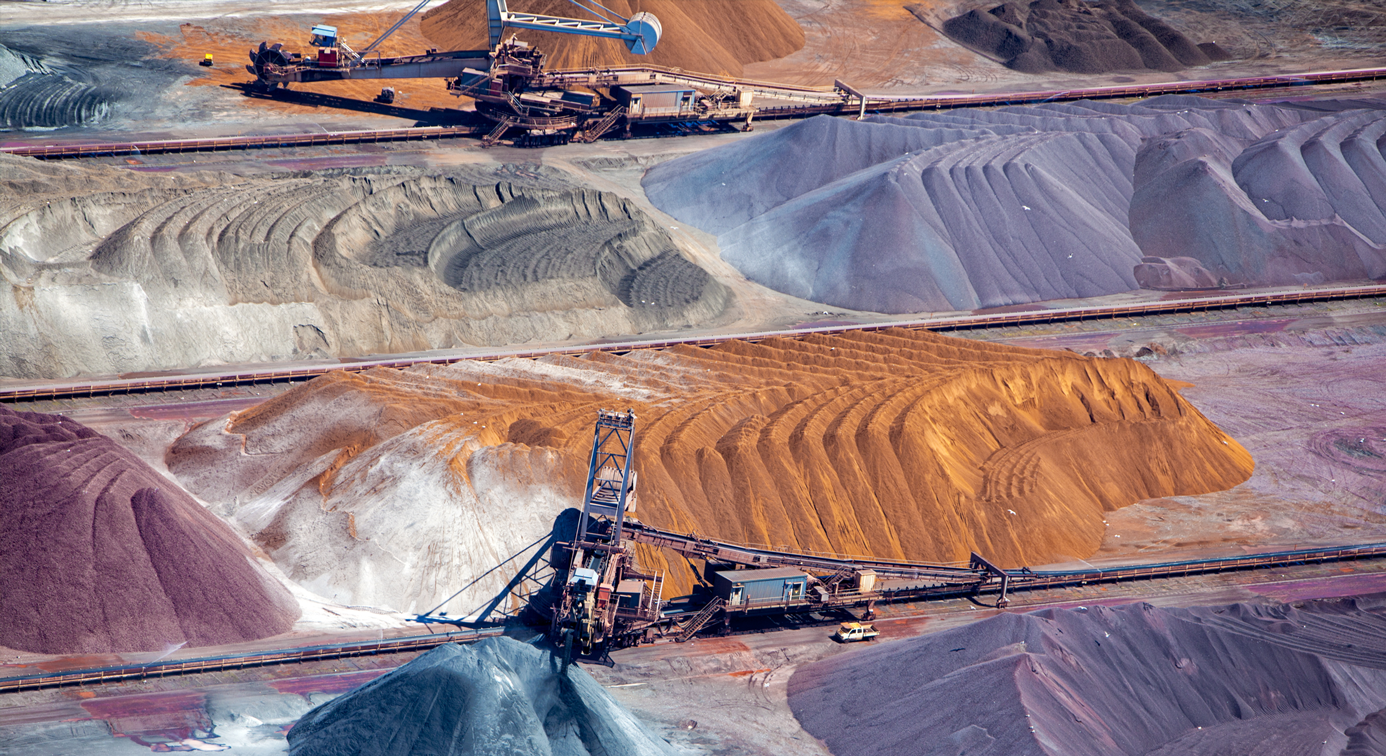
Material Flow Accounts (MFA)
Understanding Scotland’s raw material footprint.
Zero Waste Scotland produces The Scottish Material Flow Accounts (MFA), to understand the size of Scotland’s material footprint.
Why this is important
The MFA paints a picture of the scale and nature of Scotland’s consumption by calculating all the raw materials used to make products (e.g. oil and metal ores) and all the finished products we consume, whether made in Scotland or imported.
Simply put, the analysis quantifies Scotland’s material footprint for the first time.
Key findings:
- There is a relationship between what Scotland consumes and the global climate crisis;
- Consumption in Scotland is unsustainably high. This is, in part, due to the quantity of things we buy – but also due to the way we operate as a society;
- Resource intensive production processes are favoured, resulting in new goods made from virgin materials being used rather than re-used or repaired goods, or goods made from recycled materials or from remanufacturing;
- We need a system-wide change that enables us all to choose more sustainable ways to live, use the things we need and share resources.
The hidden journey of the things we consume
When looking at the resources and materials in the products we use, it helps to look at specific examples, such as Scotland's national drink.
The MFA helps us understand the flows of resources. The example below demonstrates how resources from Scotland are combined with a flow of imported materials to make a bottle of whisky.
The materials used to produce the whisky will be measured either as Scottish consumption or as exported material flows depending on whether Scottish consumers or those outside of Scotland buy the product.
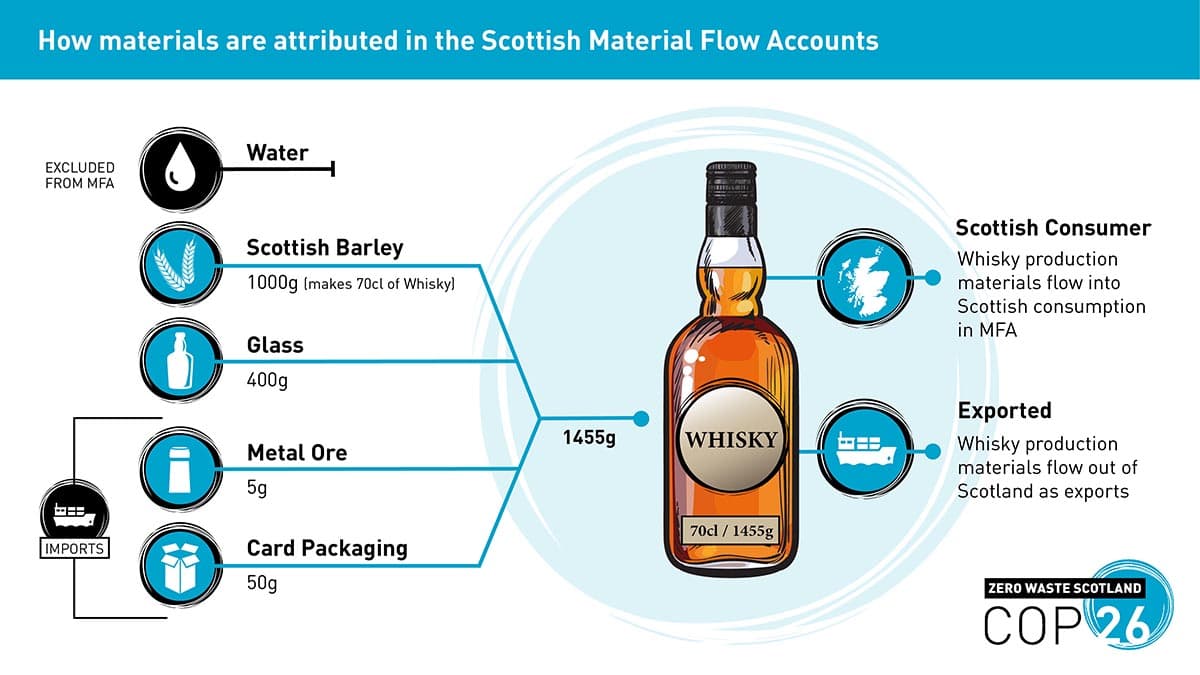
The role of Zero Waste Scotland
Zero Waste Scotland is working to inspire and enable Scotland’s people to play their part in reducing our carbon footprint from consumption – from big industry through to businesses and citizens of all ages.
Moving towards a Circular Economy is one of the solutions that will maximise value from the goods we already have in circulation while relieving pressure on finite natural materials, like oil and precious metals.
Achieving that requires a joint effort from all sectors – from individuals to designers, industry, and governments – and can help us generate new opportunities for Scotland from inward investment to new, ‘green’ jobs.




